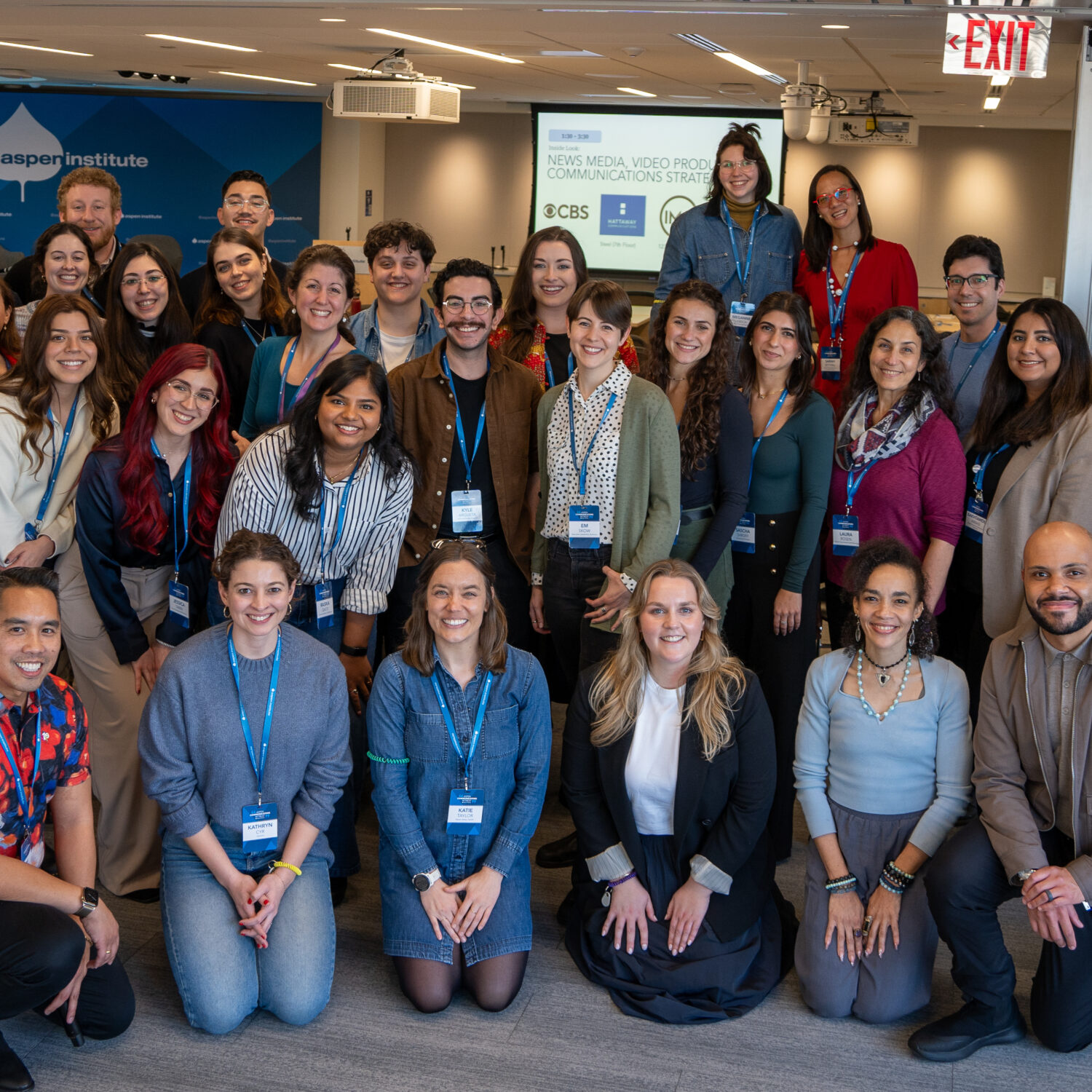Have you ever come across a writer whose thoughts just seem to stick with you, someone who helps make sense of the many ideas floating around in our shared world? It's almost as if they have a special knack for looking at things from a fresh angle, making complex topics feel a bit more approachable. Well, when we think about voices like that, Osita Nwanevu often comes to mind for many who follow current conversations. He has a way of putting words together that really draws you in, helping you see the connections between different aspects of our daily lives and the bigger picture.
His writings, you know, they appear in some pretty well-known places, giving folks a chance to consider different viewpoints on important subjects. He's a contributing editor at The New Republic, for instance, and also a columnist over at The Guardian, which means his insights reach a rather wide audience. It’s quite something, actually, to have someone who can regularly share their observations and ideas in such respected publications, offering a steady stream of thoughtful pieces for people to think about. You can, too, find his contributions in a number of other publications, making his presence felt across the media scene.
So, what makes his work stand out, and what kinds of things does he spend his time writing about? It's that, his pieces often touch upon matters that are right at the heart of how we live together and how our societies are put together. From looking at the way our country runs to exploring the bits of our culture that shape us, Osita Nwanevu brings a thoughtful approach to his writing. He tries to get to the core of what's happening, offering perspectives that encourage a bit of reflection on the part of the reader. We will look closer at his contributions and what he has been up to.
Table of Contents
- Who is Osita Nwanevu - A Look at His Background
- What Topics Does Osita Nwanevu Focus On in His Writing?
- How Does Osita Nwanevu Approach His Subjects?
- Osita Nwanevu on Democracy and Societal Issues
- Exploring Osita Nwanevu's Work on Culture and History
- Osita Nwanevu and Environmental Conversations
- What Are Osita Nwanevu's Current Engagements?
- Where Can You Find More from Osita Nwanevu?
Who is Osita Nwanevu - A Look at His Background
When we talk about someone like Osita Nwanevu, it's pretty clear he has a notable presence in the world of written communication. He's a contributing editor at a well-known publication, The New Republic, and also puts out regular columns for The Guardian. This kind of dual role, you know, shows a pretty consistent output of ideas and observations. His writings have also made their way into some other very respected places, giving a wide range of readers a chance to engage with his thoughts. For instance, you might have seen his pieces in The New Yorker, a publication known for its in-depth reporting and commentary, or perhaps in Slate, which offers a different sort of take on current events. It's really quite impressive to have one's words appear in so many different venues, reaching various groups of people who are interested in public discussions.
Before taking on these current roles, Osita Nwanevu spent time as a staff writer at The New Republic, which means he was deeply involved in creating content for that publication on a regular basis. He also held a staff writing position at The New Yorker, contributing to its unique style of reporting and analysis, and at Slate, where he helped shape their daily conversations. These past experiences, in a way, really helped build the foundation for his current work, giving him a broad perspective on how different publications approach topics. His pieces have, furthermore, been featured in The New York Times, a major newspaper, and The New York Review of Books, which focuses on literary and intellectual discussions. You can also find his contributions in The Nation, a publication with a long history of progressive thought, and Harper’s Magazine, another long-standing journal of ideas and literature. So, too, his words have appeared in the Columbia Journalism Review, which looks at the media itself, and In These Times, a publication known for its independent journalism. It’s quite a list, actually, of places where his voice has been heard, showing a pretty wide acceptance of his work.
Beyond these, his writings have also shown up in places like Flaming Hydra, Gawker, and the South Side Weekly, which really shows a willingness to engage with different kinds of platforms and audiences. This diverse set of outlets, you know, speaks to his ability to adapt his writing to various styles and purposes. He’s not just sticking to one type of publication, but rather reaching out to different communities of readers. It’s a pretty good sign of a writer who is versatile and interested in many forms of communication. In some respects, his career path has been one of consistent contribution across a broad spectrum of media, allowing him to share his insights on a variety of subjects with a very wide readership. He is, too, a senior advisor to the Philosophy and Society Initiative, which suggests a deeper engagement with academic and intellectual pursuits, linking his journalism to broader philosophical questions. This sort of role shows his interest in the foundations of ideas and how they shape our collective existence.
To give you a quick look at some personal details about Osita Nwanevu, here is a bit of information gathered from various sources:
| Detail | Information |
|---|---|
| Year of Birth | 1993 |
| Primary Roles | Contributing Editor at The New Republic, Columnist at The Guardian |
| Past Staff Roles | The New Republic, The New Yorker, Slate |
| Other Notable Publications | The New York Times, The New York Review of Books, The Nation, Harper’s Magazine, Columbia Journalism Review, In These Times, Flaming Hydra, Gawker, South Side Weekly, The Chicago Reader |
| Affiliations | Senior Advisor to the Philosophy and Society Initiative, Democratic Institutions Fellow at the Roosevelt Institute |
| Book | "The Right of the People, Democracy and the Case for." |
| Other Work | Author of a regular newsletter about American politics |
What Topics Does Osita Nwanevu Focus On in His Writing?
So, you might be wondering, what kinds of subjects does Osita Nwanevu usually write about? Well, his interests are pretty wide-ranging, but they tend to revolve around some key areas that affect our daily lives and the way our societies are set up. He covers politics, for one, which involves looking at how our governments work and the decisions that get made that impact everyone. This isn't just about who is in charge, but also about the systems and ideas that shape how power is used. He also writes about public policy, which is about the actual rules and plans that governments put in place, like how we deal with schools or healthcare. It's a bit like looking at the practical side of how things are run, and what effects those plans have on people. He has, too, a strong interest in culture, which means he explores the shared ways of life, the arts, and the trends that define a particular time or group of people. This could involve anything from popular entertainment to deeper societal values, and how they reflect or shape our collective experience. It's a very broad area, but he seems to connect the dots between different cultural expressions and their wider meanings.
Beyond these, Osita Nwanevu often turns his attention to books, reviewing them or using them as a starting point for broader discussions. This shows a deep engagement with ideas as they are presented in written form, and how those ideas contribute to public conversation. He is, too, someone who writes on American politics and culture specifically, which gives his work a particular focus on the experiences and challenges within the United States. This means he often looks at the historical roots of current issues and how they play out in the present day. His writing often examines the connections between different aspects of our national life, helping to paint a more complete picture of what is happening. He has, for example, explored the activism and politics around climate change and species conservation, which is a very pressing matter for our planet. This involves looking at the efforts people are making to protect our natural world and the political discussions that surround these efforts. It's a rather important area of focus, especially given the current state of our environment, and his contributions help bring attention to these significant issues. He has, too, written about the implications of reports like the I.P.B.E.S. report, which talks about the potential risk to a million plant and animal species, showing his concern for these global challenges.
How Does Osita Nwanevu Approach His Subjects?
When you read something by Osita Nwanevu, you might notice that he has a rather distinct way of presenting his ideas. People often talk about his "trademark style," which suggests a recognizable way of writing that is uniquely his own. This style, you know, tends to draw readers in, making them feel like they are being guided through a set of ideas or a particular situation. It's a bit like he takes readers on a journey with his words, moving them from one point to another in a thoughtful and engaging manner. He has, in some respects, a knack for making complex arguments accessible, helping people grasp intricate concepts without feeling overwhelmed. His writing often shows how things are connected, rather than just presenting isolated facts, which helps build a more complete picture for the reader. He has, too, a reputation for writing like an expert in daily magazines, which speaks to his ability to craft pieces that are both informative and easy to read, even on serious topics. This means he can convey deep insights in a way that resonates with a broad audience, making his work quite impactful. It's really about his skill in putting words together to create a compelling and clear message.
Osita Nwanevu on Democracy and Societal Issues
Osita Nwanevu has some pretty interesting ideas about how we should think about democracy, especially in our current times. He believes that those who support democratic principles need to really rethink things, both in terms of money matters and how our society is run politically. It's that, he suggests this is important to stop certain groups, like conservatives who might be trying to undermine democratic ways, from winning out. And, too, he feels it's important to keep liberals, who might sometimes simplify the challenges of democracy with just a few catchy phrases, from not fully grasping the difficulty of the task at hand. His perspective, you know, is that democracy needs a fresh look, a kind of new approach to keep it strong. He, too, has written about how the protests of the last decade, even though they were really big and seemed to explode onto the scene, were surprisingly not very effective in the long run. This is a rather thought-provoking idea, suggesting that even large public demonstrations don't always lead to the changes people hope for. It's a bit of a sobering thought, actually, that such vast efforts didn't quite hit their mark, and he tries to figure out why that might be the case.
Exploring Osita Nwanevu's Work on Culture and History
When it comes to culture, Osita Nwanevu has also offered his thoughts on what some people call "cancel culture." He suggests that certain figures, like Dave Chappelle and Shane Gillis, who claim to be victims of this phenomenon, might prefer to criticize those who speak against them rather than coming up with fresh material themselves. It's a pretty direct observation, you know, about how some public figures react to criticism. This particular piece of writing, in a way, looks at the dynamics of public discourse and how people respond when their work is questioned. He, too, has some pretty strong opinions about how we view American history. He argues that we tend to give too much importance to the very early years of our republic, suggesting that this might lead to a somewhat incomplete picture of our nation's past. It's a bit like saying we put too much weight on the beginning of a story and don't pay enough attention to all the twists and turns that came after. This kind of thinking, you know, encourages us to look at history with a more critical eye, questioning what we've been taught and considering other perspectives. He's trying to get us to think about the "incoherence of American history," which means he sees a lack of clear logic or consistency in how we often understand our past. This is a rather important point for anyone who wants to truly grasp the complexities of a nation's story.
Osita Nwanevu and Environmental Conversations
Osita Nwanevu also dedicates some of his writing to the pressing issues of our natural world, specifically focusing on activism and the politics surrounding climate change and the protection of different kinds of life. He writes about these things in the wake of reports, like the one from the I.P.B.E.S., which stated that a truly alarming number, a million plant and animal species, might be at risk of disappearing. This kind of focus, you know, shows his concern for the future of our planet and the living things that share it with us. He looks at how people are trying to make a difference, whether through direct action or by influencing political decisions. It's a bit like he's trying to bridge the gap between scientific findings and the public's understanding, showing how serious these environmental challenges are. He is, too, interested in how different groups approach these issues, and what efforts are being made to protect our world. His work in this area really brings attention to the urgency of these matters, urging readers to consider the wider implications of our actions on the environment. It’s a very important area for anyone concerned about the future of our planet.
What Are Osita Nwanevu's Current Engagements?
Beyond his regular contributions to The New Republic and The Guardian, Osita Nwanevu has a few other significant roles that show his continued involvement in public discourse and intellectual pursuits. He is, for example, a senior advisor to the Philosophy and Society Initiative, which suggests a deeper engagement with academic and thought-based work. This kind of position, you know, often involves helping to shape discussions and projects that look at fundamental questions about how we live and organize ourselves. It's a bit like he's contributing to the foundational ideas that underpin our collective understanding. He is, too, the Democratic Institutions Fellow at the Roosevelt Institute, which is a role that likely involves thinking about how our democratic systems work and how they might be strengthened or improved. This particular fellowship, in a way, places him at the heart of conversations about the future of our governance and civic life. These roles, taken together, show a consistent dedication to not just reporting on current events, but also to actively engaging with the ideas and structures that shape our society. He also authors a regular newsletter about American politics, which gives his readers a more direct and consistent way to hear his thoughts and analyses on the ever-unfolding political landscape. It's a pretty good way to stay connected with his ongoing observations.
Where Can You Find More from Osita Nwanevu?
If you're interested in reading more of Osita Nwanevu's work or connecting with his insights, there are several avenues you can explore. His articles are often collected on platforms like Muck Rack, which is a pretty useful place to find a journalist's published pieces all in one spot. It's that, this kind of resource makes it easier to keep up with his latest writings and to look back at his past contributions. You can, too, often find his email address and other contact information through professional networks, which can be helpful if you have specific inquiries or want to reach out. He also maintains a presence on platforms like LinkedIn and Twitter, which are good places to see his professional updates, share his thoughts, and engage with others in public conversation. These social media channels, you know, offer a more immediate way to follow his work and get a sense of his current interests and reactions to the news. It's a pretty common way for writers to connect with their audience these days, and it allows for a more dynamic exchange of ideas. He has, too, been known to share his perspectives through these channels, giving a glimpse into his thinking beyond his formal articles. So, if you're looking to delve deeper into his writing or just stay updated, these are some very good starting points.
Related Resources:



Detail Author:
- Name : Piper O'Reilly
- Username : brennon78
- Email : preston.brakus@hotmail.com
- Birthdate : 1979-12-26
- Address : 28878 Yundt Overpass Lake Fosterville, NJ 66511-1429
- Phone : +1.443.444.6992
- Company : Klein-Borer
- Job : Computer Support Specialist
- Bio : Ut impedit est facilis quasi dolor et. Et maxime qui itaque voluptatem est.
Socials
tiktok:
- url : https://tiktok.com/@fishere
- username : fishere
- bio : Sint distinctio molestiae reprehenderit. In est officia et molestias.
- followers : 5359
- following : 1486
twitter:
- url : https://twitter.com/erich_xx
- username : erich_xx
- bio : Assumenda officia facere distinctio mollitia recusandae. Mollitia ut architecto id. Nihil tempora aut enim sint numquam vel. Quo magnam quo maxime vitae.
- followers : 4147
- following : 203
linkedin:
- url : https://linkedin.com/in/efisher
- username : efisher
- bio : Quod architecto aut voluptates.
- followers : 3672
- following : 1844